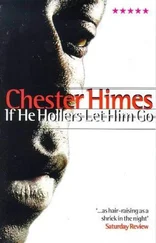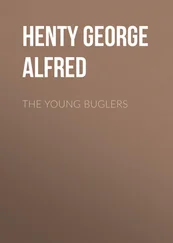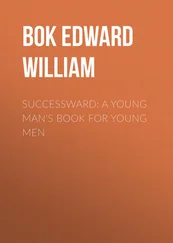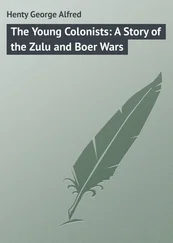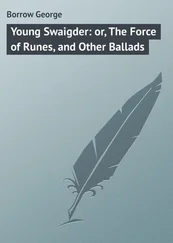George Chester - Young Wallingford
Здесь есть возможность читать онлайн «George Chester - Young Wallingford» — ознакомительный отрывок электронной книги совершенно бесплатно, а после прочтения отрывка купить полную версию. В некоторых случаях можно слушать аудио, скачать через торрент в формате fb2 и присутствует краткое содержание. Жанр: foreign_prose, на английском языке. Описание произведения, (предисловие) а так же отзывы посетителей доступны на портале библиотеки ЛибКат.
- Название:Young Wallingford
- Автор:
- Жанр:
- Год:неизвестен
- ISBN:нет данных
- Рейтинг книги:5 / 5. Голосов: 1
-
Избранное:Добавить в избранное
- Отзывы:
-
Ваша оценка:
- 100
- 1
- 2
- 3
- 4
- 5
Young Wallingford: краткое содержание, описание и аннотация
Предлагаем к чтению аннотацию, описание, краткое содержание или предисловие (зависит от того, что написал сам автор книги «Young Wallingford»). Если вы не нашли необходимую информацию о книге — напишите в комментариях, мы постараемся отыскать её.
Young Wallingford — читать онлайн ознакомительный отрывок
Ниже представлен текст книги, разбитый по страницам. Система сохранения места последней прочитанной страницы, позволяет с удобством читать онлайн бесплатно книгу «Young Wallingford», без необходимости каждый раз заново искать на чём Вы остановились. Поставьте закладку, и сможете в любой момент перейти на страницу, на которой закончили чтение.
Интервал:
Закладка:
“Yes?” retorted Daw. “How about this eight thousand or so that you committed mayhem on Filmore to get?”
“Good, honest money,” asserted Wix. “I hate to boast about your present companion, but I don’t owe Filmore a cent. I merely worked up a business and sold my share in it. Of course, they didn’t know I was selling it, but they’ll find out when they go over the records, which are perfectly straight. If, after buying the chance to go into business, they don’t know what to do with it, it isn’t my fault.”
A traveling man who had once been in the office of The La Salle Grain and Stock Brokerage Company for an afternoon’s flyer, and who remembered the cordial ease with which Wix had taken his money, came over to the table.
“Hello, Wix; how’s tricks?” he hailed.
Wix looked up at him blankly but courteously.
“Beg pardon,” he returned.
The face of the traveling man fell.
“Aren’t you Mr. Wix, of Filmore?”
“I’m afraid not,” replied Wix, smiling with great cordiality. “Sorry to disappoint you, old man.”
“Really, I beg your pardon,” said the traveling man, perplexed. “It is the most remarkable resemblance I ever saw. I would have sworn you were Wix. He used to run a brokerage shop in the Grand Hotel in Filmore.”
“Never was in the town,” lied Wix.
The man turned away. Daw looked after him with an amused smile.
“By the way, Wix, what is your name now?”
“By George, I haven’t decided! I was too busy getting rid of my only handicap to think up a substitute. I’ll tell you in a minute,” and on the spur of the moment he invented a quite euphonious name, one which was to last him for a great many years.
“Wallingford,” he announced. “How does that hit you? J. Rufus Wallingford!”
CHAPTER VI
They were glad to see Blackie Daw back on Broadway – that is, in the way that Broadway is glad; for they of the Great White Way have no sentiments and no emotions, and but scant memories. About Blackie’s companion, however, they were professionally curious.
“Who is this large, pink Wallingford person, and where did you get it?” asked Mr. Phelps, whose more familiar name was Green-Goods Harry.
Mr. Daw, standing for the moment with Mr. Phelps at the famous old cheese-and-crackers end of the Fifth Avenue bar, grinned.
“He’s an educated Hick,” he responded, “and I got him out of the heart of the hay-fever district, right after he’d turned a classy little trick on the easy producers of his childhood home. Sold ’em a bankrupt bucket-shop for eight thousand, which is going some !”
Mr. Phelps, natty and jaunty and curly-haired, though shifty of eye, through long habit of trying to watch front and back doors both at once, looked with a shade more interest across at the imposing white vest of young J. Rufus where he stood at the bar with fat and somber Badger Billy. There was a cocksure touch to the joviality of young Wallingford which was particularly aggravating to an expert like Mr. Phelps. Young Wallingford was so big, so impressive, so sure of pleasing, so certain the world was his oyster, that it seemed a shame not to give his pride a tumble – for his own sake, of course.
“Has he got the eight thousand on him, do you think?” asked the green-goods one, his interest rapidly increasing.
“Not so you could notice it,” replied Daw with conviction. “He’s a wise prop, I tell you. He’s probably lugging about five hundred in his kick, just for running expenses, and has a time-lock on the rest.”
“We might tinker with the lock,” concluded Harry, running his fingers through his hair to settle the curls; “it’s worth a try, anyhow.”
“You’ll bounce right off,” declared Mr. Daw. “I tried to put a sweet one over in his home town, and he jolted the game so quick he made its teeth rattle.”
“Then you owe him one,” persisted Mr. Phelps, whom it pained to see other people have money. “Do you mean to say that any pumpkin husker can’t be trimmed?”
“Enjoy yourself,” invited Mr. Daw with a retrospective smile, “but count me out. I’m going to Boston next week, anyhow. I’m going to open a mine investment office there. It’s a nice easy money mining district.”
“For pocket mining,” agreed his friend dryly.
Young Wallingford, in his desire for everybody to be happy, looked around for them at this juncture, and further conversation was out of the question. The quartet lounged out of the Fifth Avenue bar and across Broadway in that dull way peculiar to their kind. At the Hoffman House bar they were joined by a cadaverous gentleman known to the police as Short-Card Larry, whose face was as that of a corpse, but whose lithe, slender fingers were reputed to have brains of their own, and the five of them sat down for a dull half-hour. Later they had dull dinner together, strolled dully into four theaters, and, still dull, wound up in the apartments of Daw and J. Rufus.
“What do you think of them?” asked Blackie in their first aside moment.
“They give me the pip,” announced J. Rufus frankly. “Why do they hate themselves so? Why do they sit in the darkest corners and bark at themselves? Can’t they ever drink enough to get oiled happy?”
“Not and do business with strangers on Broadway,” Daw explained. “Phelps has been shy about thin glassware for five years, ever since he let an Indiana come-on outdrink him and steal his own money back; Billy Banting stops after the third glass of anything, on account of his fat; the only time Larry Teller ever got pinched was for getting spifflicated and telling a reporter what police protection cost him.”
“If I wasn’t waiting to see one of them bite himself and die of poison I’d cut ’em out,” returned Mr. Wallingford in the utmost disgust. “Any one of them would slung-shot the others for the price of a cigarette. Don’t they ever get interested in anything?”
“Nothing but easy marks,” replied Mr. Daw with a grin. “The way they’re treating you is a compliment. They’re letting you just be one of them.”
“One of them! Take it back, Blackie!” protested Wallingford. “Why, they’re a bunch of crooks!”
In deep dejection young Wallingford, rejoining his guests, ordered three lemonades and a quart of champagne. There was a trifle more of animation among them now, however, since they had been left alone for a few moments. They told three or four very hilarious stories, in each of which the nub of the joke hinged on an utter disregard of every human decency. Then, quite casually and after a lull, Badger Billy smoothed down his smart vest and cleared his throat.
“What do you fellows say to a little game of stud?” he proposed.
“Sure!” agreed Wallingford with alacrity. “That’s the first live noise I’ve heard to-day,” and he went to the ’phone at once to order up some cards and chips.
With his back turned, the three lemonade drinkers exchanged pleased smiles. It was too easy! Mr. Daw let them smile, and reposed calmly upon the couch, entirely disinterested. Professional ethics forbade Mr. Daw to interfere with the “trimming” of the jovial Mr. Wallingford, and the instincts of a gentleman, with which, of course, they were all perfectly provided, prevented him from taking any part in that agreeable operation. To his keen amusement the game was very brief – scarcely more than twenty minutes.
It was Short-Card Larry who, with a yawn, discovered suddenly how late it was and stopped the game. As he rose to go, young Wallingford, chuckling, was adding a few additional bills to the plethoric roll in his pocket.
“What made you chop the game, Larry?” asked Green-Goods Harry in impatient wonder. “We’d ought to strung it along a while. What made you let him have that hundred and fifty so quick?”
Читать дальшеИнтервал:
Закладка:
Похожие книги на «Young Wallingford»
Представляем Вашему вниманию похожие книги на «Young Wallingford» списком для выбора. Мы отобрали схожую по названию и смыслу литературу в надежде предоставить читателям больше вариантов отыскать новые, интересные, ещё непрочитанные произведения.
Обсуждение, отзывы о книге «Young Wallingford» и просто собственные мнения читателей. Оставьте ваши комментарии, напишите, что Вы думаете о произведении, его смысле или главных героях. Укажите что конкретно понравилось, а что нет, и почему Вы так считаете.


